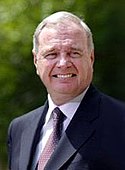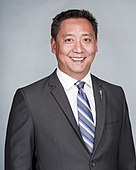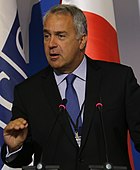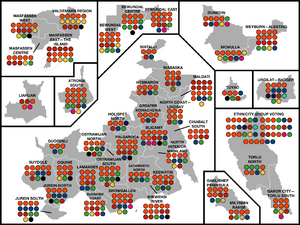2020 Scalizagastian federal election
This article is incomplete because it is pending further input from participants, or it is a work-in-progress by one author. Please comment on this article's talk page to share your input, comments and questions. Note: To contribute to this article, you may need to seek help from the author(s) of this page. |
| |||||||||||||||||||||||||||||||||||||||||||||||||||||||||||||||||||||||||||||||||||||||||||||||||||||||||||||||||||||||||||||||||||||||||||||
All 516 seats in the Parliament of Scalizagasti 259 seats needed for a majority | |||||||||||||||||||||||||||||||||||||||||||||||||||||||||||||||||||||||||||||||||||||||||||||||||||||||||||||||||||||||||||||||||||||||||||||
|---|---|---|---|---|---|---|---|---|---|---|---|---|---|---|---|---|---|---|---|---|---|---|---|---|---|---|---|---|---|---|---|---|---|---|---|---|---|---|---|---|---|---|---|---|---|---|---|---|---|---|---|---|---|---|---|---|---|---|---|---|---|---|---|---|---|---|---|---|---|---|---|---|---|---|---|---|---|---|---|---|---|---|---|---|---|---|---|---|---|---|---|---|---|---|---|---|---|---|---|---|---|---|---|---|---|---|---|---|---|---|---|---|---|---|---|---|---|---|---|---|---|---|---|---|---|---|---|---|---|---|---|---|---|---|---|---|---|---|---|---|---|
| |||||||||||||||||||||||||||||||||||||||||||||||||||||||||||||||||||||||||||||||||||||||||||||||||||||||||||||||||||||||||||||||||||||||||||||
| |||||||||||||||||||||||||||||||||||||||||||||||||||||||||||||||||||||||||||||||||||||||||||||||||||||||||||||||||||||||||||||||||||||||||||||
The 2020 Scalizagastian federal election was held on August 22, 2020, to elect 516 members of the Parliament of Scalizagasti. Prior to the election, the Social Democratic Party (SDP), led by Prime Minister Sarah Millard, governed Scalizagasti in a coalition with the Greens, Labour and Socialist Party (LSP), and the Progressive People's Party (PPP). It was the second election for Millard as SDP leader and first election as the incumbent Prime Minister.
With 46.3% of the popular vote and 255 seats, the SDP won one of the largest parliamentary victories in Scalizagastian history. Up 101 seats from 2016, Prime Minister Millard formed government with the Greens, no longer needing the LSP and PPP as they did previously. The large gains by the SDP mostly came at the expense of the Revolutionary Republican Party (RRP) and Greens, dropping by 11 and 4 points of support respectively. The RRP dropped to second place with 92 seats and the Greens remained third with 57 seats. With exception to the SDP and PPP, every party dropped in support, although marginal regional gains allowed the Aulden Democratic Party (ADP) and Liberal-Conservative Alliance (LCA) to pick up additional seats. All ten parties which had a presence after the 2016 election returned to Parliament.
Background
Following the 2016 federal election, the SDP managed to form a governing coalition with the Greens, LSP, and PPP, despite only winning 154 seats to the RRP's 160. The 2016 election gave the left-wing parties (SDP, Greens, and LSP) a large enough seat share to govern with support from the agrarian centrist Progressives. As the largest party, the RRP was given the first opportunity to negotiate a coalition, but the SDP-Green-LSP-PPP coalition presented their agreement in the middle of coalition talks, forcing the President to recall Parliament before the RRP had finished their negotiations.
The 2016 election also led to the collapse of Scalizagasti's right-wing parties. The New Scalizagasti Party (NSP), Liberal-Conservative Alliance (LCA), and Patriotic Defense Movement (PDM) all suffered severe defeats from earlier elections, where they managed to consistently form government for over a decade. Anger over austerity measures enacted by the conservative government led to success for the centrist RRP, centre-left SDP, and left-wing Greens.
The NSP and LCA were the only parties to switch leaders between the elections. Moe Trellos, a former Garor City councillor, was elected as leader of the LCA on 8 August 2017. Les Erlosto, MP for Jurein North, was elected as leader of the NSP on 16 September 2018.
During the 2020 CAVID-19 outbreak in the Great Experiment, the SDP's quick and effective response boosted their popularity, eventually skyrocketing them to over 50% support. Prime Minister Millard enjoyed a net personal popularity rate of +58 points (76 positive/18 negative/6 no opinion). Ultimately, the Rally 'round the flag effect created by the CAVID-19 pandemic allowed the SDP to gain immense support during the election.
Electoral System
The 516 members of Parliament are elected by open party-list proportional representation in multi-member constituencies. Seats are allocated using the Sainte-Laguë method, with a 3% threshold for parties and a 1.5% threshold for independents.
480 seats are elected in 46 geographical electoral districts, ranging anywhere from 5 to 19 seats per electorate. The other 36 seats are elected through a national list, where each of Scalizagasti's six recognized ethnic groups (officially documented in the census) vote for 6 seats each. If a party wins 259 or more seats, they can govern without forming any coalition. However, this is incredibly rare due to Scalizagasti's proportional electoral system adopted in the early 20th century.
Changes from 2016
As part of the coalition demands by the Green Party, numerous reforms were undertaken in preparation for the 2020 election. Most notably, the voting age was lowered from 18 to 16 years of age. Permanent residents were also given the right to vote, given that they lived in Scalizagasti for at least five years. Minor parties (those with 16 or fewer seats in Parliament) and any extraparliamentary party which earned at least 2% of the vote were allocated 1.5 hours of free advertising on Scalizagasti National Media Corporation. Previously, only major parties were granted free advertising space equalling 3 hours each.
Election Date
The date of the election, 13 August 2020, was set by President Paul Kruig following the dissolution of Parliament.
Unless an early election is called by the government or no government can be formed following the failure of a confidence vote, a general election is held every four years. The last election was held on 22 August 2016. According to the 2000 Election Law, unless an early election is called, the general election must be held in August.
Polls close in electorates at 7:00 PM local time, and results are usually released a few hours later. However, recounts and other unexpected issues have previously caused vote count delays for up to 24 hours.
Campaign
Political Parties
In total, 25 parties stood in the election. However, only 10 won seats in Parliament. The vote share of minor extraparliamentary parties are not recorded.
| Party | Leader | Founded | Ideology | 2016 election | ||
|---|---|---|---|---|---|---|
| % vote | Seats | |||||
| Social Democratic Party | Sarah Millard | 1812 | Social democracy | 26.5 | 154 | |
| Revolutionary Republican Party | Michel Garon | 1840 | Big-tent, Liberalism, Social liberalism, Civic nationalism | 28.0 | 160 | |
| Green Party | Thomas Smith | 1983 | Green politics, Eco-socialism | 14.0 | 83 | |
| New Scalizagasti Party | Les Erlosto | 2004 | National conservatism, Social conservatism | 9.3 | 54 | |
| Liberal-Conservative Alliance | Moe Trellos | 2000 | Classical liberalism, Liberal conservatism | 5.3 | 21 | |
| Labour and Socialist Party | Ester Nortust | 1987 | Socialism, Left-wing populism | 4.2 | 20 | |
| Patriotic Defense Movement | Steve Pertillo | 1999 | Nationalism, Right-wing populism | 3.6 | 14 | |
| Progressive People's Party | Guy Manderson | 1904 | Centrism, Agrarianism, Social liberalism | 2.3 | 6 | |
| Aulden Democratic Party | Curtis Soeder | 1805 | Aulden Democracy, Red Toryism | 2.1 | 3 | |
| Sontalirdenna | George Brownley-Ashton | 1979 | Regionalism, Milynian sovereigntism, Social democracy | 0.4 | 1 | |
| Reform Party | Bole Yallussi | 2000 | Radical Centrism | – | – | |
| Pirate Party | Lana Matthews | 2008 | Pirate Politics | – | – | |
| Birthday Party | Joe Kerr | 2004 | Satire | – | – | |
| Ecologist Party of Scalizagasti | Frollis Emmullo | 2008 | Green politics, Green conservativism | – | – | |
| Holispet First | Walter Baunck | 1948 | Regionalism, Haprian sovereigntism, Conservatism | – | – | |
| Islander Independence Party | Wendy Benemaw | 1981 | Regionalism, Torlu Island sovereigntism | – | – | |
| Citizen's Party | Odara Samson | 2010 | Centrism, Pro-democracy | – | – | |
| Animal Rights Party | Elizabeth Peric | 2005 | Animal welfare | – | – | |
| Communist Party of Scalizagasti | Anadi Bains | 1901 | Communism | – | – | |
| Liahuan Heavenly Sutai Faith Party | Propi Wechuk | 1967 | Spiritualism, Sutai Faith | – | – | |
| Universal Basic Income Now | Yandrew Ng | 2018 | Basic income | – | – | |
| Imperial Restoration Party | Joseph Macton | 1967 | Monarchism | – | – | |
| Scalizagasti Feminist Party | Laura Innis | 2005 | Feminism, LGBT rights | – | – | |
| Vegan and Vegetarian Party | Lin Brown | 2017 | Veganism, animal welfare | – | – | |
| The Family Party | Joseph Randy Ronald | 1982 | Religious right, Social conservatism | – | – | |
CAVID-19 Response
Scalizagastian health authorites were first notified of CAVID-19 on 24 February by Kigwari, where over 1000 cases were documented. On 26 February, Prime Minister Millard announced that all travel between Scalizagasti and Kigwari would be restricted. Following the advice of health officials, Millard also imposed a mandatory quarantine on all travelers entering Scalizagasti regardless of their point of departure. While some, such as NSP leader Les Erlosto, criticized these measures as being unneccesary and extreme, it was later determined that this quick action mitigated the early spread of the virus.
The first case in Scalizagasti was reported on 14 March, which experts believe were caused by an undetected asympotmatic carrier of the virus. By 18 March, there were 27 reported cases at which point a national lockdown was imposed and all non-essential travel restricted. ScalHealth was given an addition 4 billion dollars in funding for a rigorous virus testing and contact-tracing program, which helped track the spread of the virus and prevent new cases. Containment measures were praised by international medical organizations for their effectiveness, as specific local clusters were targeted, tested, and quarantined. Hesmaron City, for example, was completely sealed off from the rest of Hesmaron following a small outbreak to prevent spread outside of the city.
An effective government campaign saw Scalizagastian society support the pandemic relief efforts. Daily briefings from the Prime Minister and Chief Medical Officer kept citizens informed and aware of new restrictions or relief programs. Programs such as free masks, wage & rent subsidies, and SPEB (Scalizagastian Pandemic Emergency Benefit) helped slow the spread of the virus and lessen the economic damage from lockdown.
As a result of this strong leadership and quick action, the national lockdown was removed in July after no new infections were reported for 20 days in a row. However, the strict border restrictions remained in place in order to prevent new cases from entering the country. When the election occured on 13 August, there were only 2160 cases with 45 deaths.
Leaders' Debate
There were four main debates hosted during the election. The first was a one-on-one debate between SDP leader Millard and RRP leader Garon, the leaders of the two biggest parties. The second was a four-leader debate attended by Millard, Garon, Smith, and Erlosto. The third was a debate between the leaders of the six major parties (parties with more than 16 seats in Parliament); however, NSP leader Les Erlosto did not attend due to alleged "bias" by the moderators. The final debate was for small parties, which was attended by Trellos, Nortust, Pertillo, Manderson, Soeder, Brownley-Ashton, and Reform leader Bole Yallussi.
The second debate was the most-watched debate, with topics including the post-pandemic economy, the environment, foreign policy, and minority relations. Millard was largely seen to have won the debate, attacking the liberal RRP for having similar policies to the conservative NSP. Millard accused Garon, who is seen as the right-wing of his party, of wanting to implement a two-tier healthcare system where "the rich can pay for good care and everyone else can suffer." Analysts agreed that Garon's response to the charges were weak, and that he was largely the loser of the debate.
Wosede Controversy
On 6 August 2020, private comments made by RRP campaign manager James Wosede were published by the media. Wosede made derogatory remarks against the Torlu Islander ethnic group for their support of Alliance leader Moe Trellos, claiming the only reason Islanders support the Alliance is because Trellos is "one of them." He also remarked that Islanders are "stupid" and "traitorous" for their disproportionate support for the LCA.
The remarks immediately drew criticism from all sides, and Prime Minister Millard called it a "disgusting, racist, and derogatory rant" against both Trellos and Torlu Islanders. RRP leader Michel Garon was also criticized for remaining silent on the matter until three days later on 9 August, at which point Wosede was fired as campaign manager.
The controversy solidified the RRP's position behind the SDP as voters once again abandonded the party. Previously, they had been slowly eroding support from the SDP as the CAVID-19 pandemic became less of a pressing issue. In a Bewundal University poll taken the day before the election, the net personal favourability rating of Garon had dropped to -15. In the Islander Group, the RRP won only 6.5% of the vote, one of the lowest vote shares for the RRP in the Islander Group ever. Political pundits also cited this controversy as one of the reasons for Garon's third electoral defeat in a row.
Results
With 255 seats, the Social Democrats won a plurality of seats, only four short of an absolute majority. The SDP, under Prime Minister Sarah Millard, experienced its largest victory in the history of the party and formed government for a second term.
Analysis
The 2020 election was the largest victory for the Social Democratic Party in its over 200 years of history. They came first in 41 out of 46 electoral districts, and came in second in the remaining five. The SDP also won an absolute majority of the popular vote in 11 electoral districts. The highest concentration of SDP support was in the South-East Shore Area, a high-density developed urban region of the country. In Atronia, a district inside of this demographic region, the SDP won over 60% of the vote and 13 out of 19 seats. The party's worst performance was in Jurein South, a western Scalizagastian district that is traditionally a stronghold for right-wing parties, with 28.4% of the popular vote. Ironically, the party still came in first due to vote-splitting between the NSP and PDM.
The Revolutionary Republicans, while coming in second place and remaining as the official opposition, was knocked down to under 20% of the popular vote for the second time in eight years. While it retained its core strongholds in Masfassen, Liahuan, and Maldati, the party faced significant losses everywhere else in the country. The RRP caucus was almost halved, going from 160 in 2016 to 92 in 2020. While the party still performed better than its humiliating loss in 2012, party insiders were highly disappointed at the election results. Central and northern Scalizagasti, which normally support the RRP, was swept by the SDP.
After the 2012 election, some had high expectations that the Green Party would be able to form government. However, from 2012 to 2020 both the Green Party's popular vote and seat count were cut in half. Most of the soft Green support was absorbed by the Social Democrats, especially youth and first-time voters. While it remained in first place in South Torlu, the Green Party lost its lead in Sunshine Coast and its second-place position in Atronia and Weyburn.
The two major conservative parties, the New Scalizagasti Party and the Liberal-Conservative Alliance, were unable to increase their vote share from 2016 and both remained under 10% nationally. Before the election, the NSP consistently polled above 12% following the election of Les Erlosto as leader. However, a weak campaign combined with accusations of a return to the austerity of the 2000s saw the party lose support nationwide. The NSP's best results were in Jurein and Urqilat City, traditionally safe conservative areas, where it was beaten by the SDP in all three districts. Despite losing support, the Alliance managed to gain a seat due to a more effecient vote distribution. Alliance gains in Weyburn, Oquine, Outer Blicamy, and Hesmaron City offset losses elsewhere, and most of the time the Alliance managed to retain its incumbent.
Summary Results
Party vote percentage

| Party | Popular Vote | Seats | ||||||||||||
|---|---|---|---|---|---|---|---|---|---|---|---|---|---|---|
| % | Change | Total | Change | |||||||||||
| Social Democratic Party (SDP) | 46.3 | +19.8 | 255 | +101 | ||||||||||
| Revolutionary Republican Party (RRP) | 16.7 | -11.3 | 92 | -68 | ||||||||||
| Green Party (GRN) | 9.6 | -4.4 | 57 | -26 | ||||||||||
| New Scalizagasti Party (NSP) | 8.3 | -1.0 | 46 | -8 | ||||||||||
| Liberal-Conservative Alliance (LCA) | 4.8 | -0.5 | 22 | +1 | ||||||||||
| Labour and Socialist Party (LSP) | 3.3 | -0.9 | 16 | -4 | ||||||||||
| Patriotic Defense Movement (PDM) | 3.4 | -0.2 | 13 | -1 | ||||||||||
| Progressive People's Party (PPP) | 2.4 | +0.1 | 9 | +3 | ||||||||||
| Aulden Democratic Party (ADP) | 1.8 | -0.3 | 5 | +2 | ||||||||||
| Sontalirdenna (SON) | 0.3 | -0.1 | 1 | 0 | ||||||||||
| Others | 3.1 | -0.9 | 0 | 0 | ||||||||||
| Reform Party (REF) | - | - | - | - | ||||||||||
| Pirate Party (PIR) | - | - | - | - | ||||||||||
| Birthday Party (BIRP) | - | - | - | - | ||||||||||
| Ecologist Party of Scalizagasti (EPS) | - | - | - | - | ||||||||||
| Holispet First (HSF) | - | - | - | - | ||||||||||
| Islander Independence Party (IIP) | - | - | - | - | ||||||||||
| Citizen's Party (CIT) | - | - | - | - | ||||||||||
| Animal Rights Party (ARP) | - | - | - | - | ||||||||||
| Communist Party of Scalizagasti (CPS) | - | - | - | - | ||||||||||
| Liahuan Heavenly Sutai Faith Party (LHSFP) | - | - | - | - | ||||||||||
| Universal Basic Income Now (UBI) | - | - | - | - | ||||||||||
| Imperial Restoration Party (IRP) | - | - | - | - | ||||||||||
| Scalizagastian Feminist Party (SFP) | - | - | - | - | ||||||||||
| Vegan and Vegetarian Party (VVP) | - | - | - | - | ||||||||||
| The Family Party (FAM) | - | - | - | - | ||||||||||
| Independents | - | - | - | - | ||||||||||
| Total | 100 | – | 516 | – | ||||||||||
Aftermath
Two days after the election, Millard announced a confidence and supply agreement with the Green Party. The joint policy document outlined some areas of focus for the incoming government, including publicly funded university, a comprehensive climate plan (the "Green Shift"), rural internet infrastructure, and more. The PPP announced their support of this document for its investments in rural and farming communities, although their support was not needed to form a government.
The SDP officially formed government on 13 September 2020 following the success of their investiture vote. The SDP, Greens, and PPP voted in favour of the investiture vote; the RRP, NSP, LCA, and PDM voted against; and the LSP, ADP, and Sontalirdenna abstained. The final results were 321 aye, 173 nay, and 22 abstain.
After the election, Michel Garon and Les Erlosto both announced their resignation as leader. While there were calls from within his party to step down as well, Steve Pertillo declared that he would lead the PDM into the next election.











